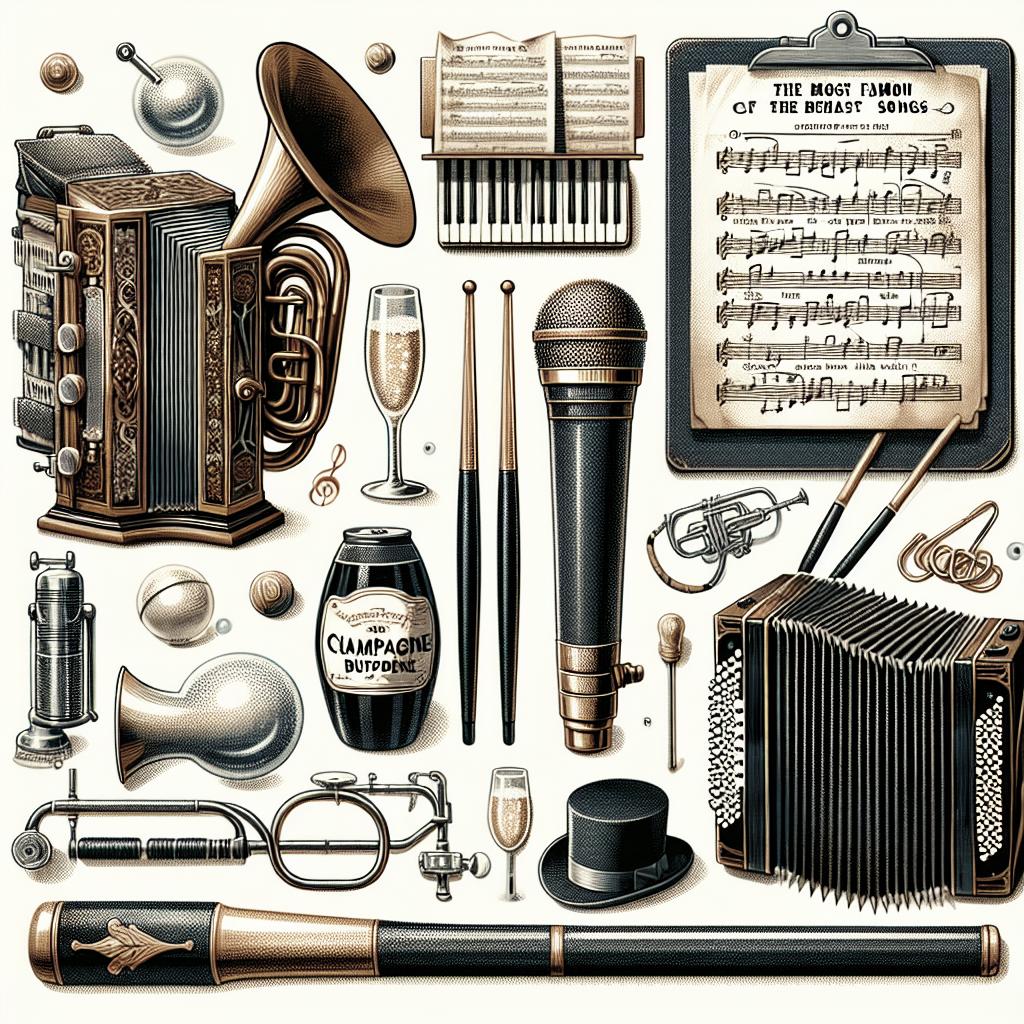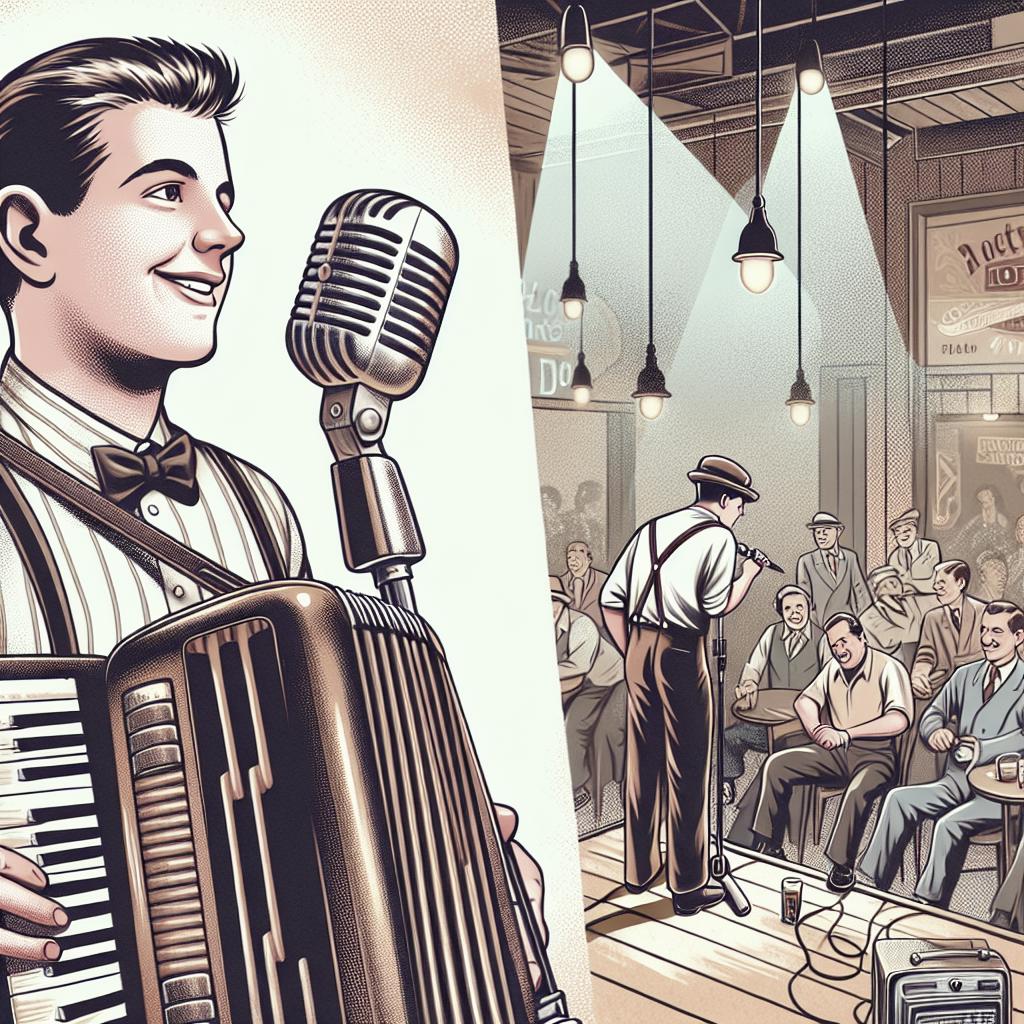<>
“`
Lawrence Welk, renowned as the “champagne music” maestro, was not only a beloved personality on American television but also amassed a significant collection of memorable tunes. His big band was the musical centerpiece of the famous “The Lawrence Welk Show,” which aired for over three decades. This blog post explores some of Welk’s most iconic songs, delving into their origins, popularity, and lasting impact on the music world. Whether you’re a long-time fan or a newcomer to his work, you’ll find insights into what made his sound special and enduring.
Early Rise: The Sweetest Story Ever Told
The Sweetest Story Ever Told was one of the tracks that solidified Lawrence Welk’s early career. Released in the mid-1930s, the song showcased Welk’s knack for creating mellow, soothing melodies that appealed to a wide audience. Backed by his orchestra, Welk’s renditions were marked by his impeccable direction and attention to detail.
This song became a staple during his live performances and early radio days, setting the stage for what would later become “The Lawrence Welk Show.” The sweetness and simplicity of the tune resonated with audiences, helping to establish Welk’s signature sound that would define his career.
The Hit Parade: Bubbles in the Wine
One of Lawrence Welk’s most famous songs, “Bubbles in the Wine” is a hallmark of his “champagne music” style. Composed by Welk himself with additional contributions from his band members, the song became synonymous with his TV show, often featured prominently during opening sequences. The bubbly, effervescent nature of the song perfectly encapsulated the light-hearted, feel-good atmosphere that defined Welk’s musical ethos.
The song’s popularity also cemented Welk’s band as one of America’s favorite musical acts, allowing them to tour extensively and gain national acclaim. Its catchy melody and celebratory vibe have ensured that “Bubbles in the Wine” remains a cornerstone in Welk’s musical legacy.
Signature Sound: Calcutta
The 1961 instrumental hit “Calcutta” stands out as one of Welk’s most commercially successful songs. Not only did it become a number one hit on the Billboard Hot 100, but it also demonstrated Welk’s versatility and ability to adapt to the changing musical landscape. The exotic and rhythmic tones of “Calcutta” offered something new to fans while remaining true to Welk’s foundational style.
The song’s success was a significant milestone, proving that Welk could stay relevant even as musical tastes shifted. “Calcutta” received considerable airplay and remains one of the most recognizable pieces in Welk’s repertoire. Its international flair was a fresh take that appealed to a broader audience, cementing Welk’s adaptability and enduring appeal.
Evergreen Ballads: My Grandfather’s Clock
Lawrence Welk’s rendition of “My Grandfather’s Clock” is a classic example of his ability to breathe new life into traditional songs. Originally written by Henry Clay Work in 1876, the ballad tells the poignant tale of a grandfather and his trusty clock. Welk’s version, with its rich orchestral backing and emotive delivery, resonated deeply with audiences, adding to the song’s long-standing popularity.
The piece became a regular feature on “The Lawrence Welk Show”, further reinforcing Welk’s reputation for reviving and popularizing timeless melodies. “My Grandfather’s Clock” is a testament to Welk’s skill in creating emotional connections through music, a quality that endeared him to generations of fans.
Dancefloor Favorites: The Clarinet Polka
“The Clarinet Polka” is another standout in Welk’s catalog, showcasing his band’s prowess in delivering lively, danceable tunes. The high-energy polka quickly became a favorite among audiences, exemplifying the joyous, communal spirit of Welk’s music. Featuring skillful clarinet solos and brisk, upbeat tempos, this song is a joyful celebration of musicality and dance.
The piece’s enduring popularity during “The Lawrence Welk Show” exemplified Welk’s flair for including diverse musical styles in his repertoire. “The Clarinet Polka” remains a fan favorite and a quintessential example of Welk’s ability to bring folks together through the sheer enjoyment of music.
Melodic Memories: Moon River
Though not originally a Welk composition, his rendition of “Moon River” remains one of the most cherished in his collection. The song, written by Henry Mancini and Johnny Mercer, became an instant classic upon its release in the early 1960s. Welk’s dreamy arrangement brought an additional layer of elegance and warmth to the already beloved tune.
The band’s orchestral interpretation was both poignant and serene, making it a memorable highlight of Welk’s shows. “Moon River” demonstrated Welk’s awesome ability to adapt contemporary hits into his unique style, making them accessible and enjoyable for his audiences.
Lessons Learned
| Song | Significance | Impact |
|---|---|---|
| The Sweetest Story Ever Told | Early career-defining song | Set the stage for Welk’s lasting popularity |
| Bubbles in the Wine | Signature “champagne music” tune | Widely recognized and cherished by audiences |
| Calcutta | Billboard number one hit | Showed Welk’s versatility and knack for adapting |
| My Grandfather’s Clock | Emotive ballad | Exemplified Welk’s ability to revive classic tunes |
| The Clarinet Polka | Lively polka | Highlighted Welk’s band’s musical prowess and dance appeal |
| Moon River | Elegant orchestral rendition | Demonstrated Welk’s ability to adapt and reinvent contemporary hits |
“`


